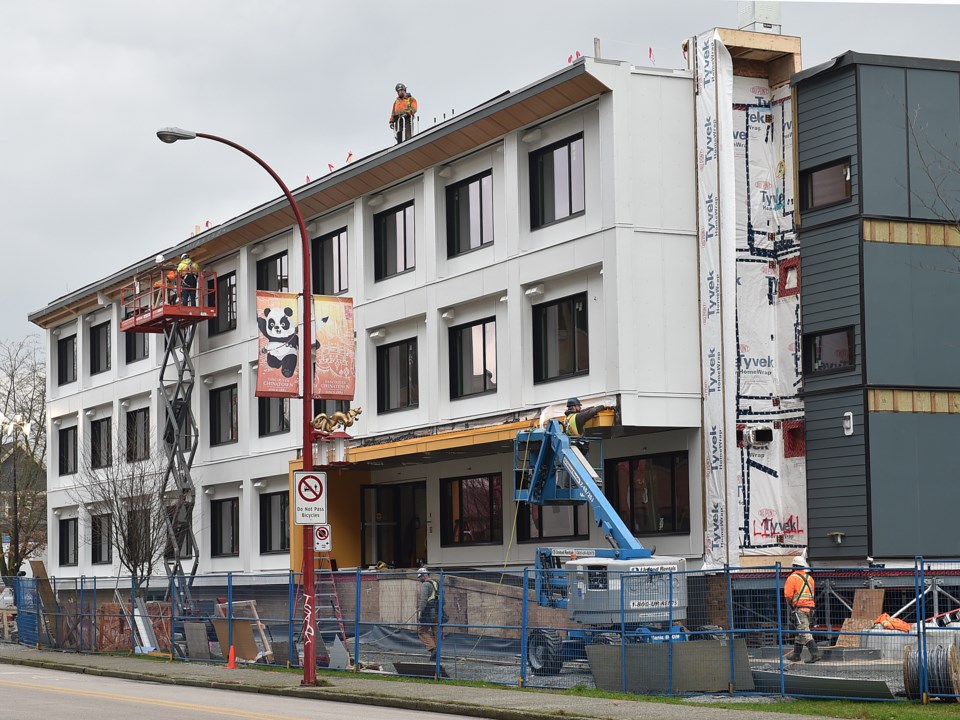I’ll begin with a question: Do you think $66 million spent to build 605 units of temporary modular housing in �鶹��ýӳ��is good value for the money?
The I’ve spoken to over the past couple of years will tell you it is.
So will the non-profit housing providers who operate the 10 sites.
You can add Mayor Kennedy Stewart to the same list and, of course, the provincial government, which announced in September 2017 that it would contribute the $66 million to get the housing built.
But what if I asked you the same question about value for money and told you the price tag for the 605 units was actually $88 million. That’s $22 million more than we were told in September 2017.
When divided over , that’s roughly $9 million per site, although some cost less and some cost more; 39 units were built in the 1100-block Franklin Street, whereas 98 were built on one property in the 600-block Cambie Street.
Why the increase?
A representative from B.C. Housing, the provincial government’s housing arm, emailed me some answers over the past month to answer my questions about the big spike in costs.
The explanation:
“The cost of the modular projects in Vancouver, which are estimated to total approximately $88 million, came in higher than initially planned, following design changes to include commercial grade kitchens, as well as additional programming, support service and amenity spaces for people living in these homes.”
Which is interesting because the initial news release in 2017 from the B.C. government said each building would include “approximately 50 self-contained units, complete with individual kitchen and bathrooms, share laundry, indoor and outdoor amenity spaces, plus programming space.”
The same release mentioned the sites would be staffed 24/7 by non-profit housing providers and include support services to help people in need stabilize and rebuild their lives.
All for $66 million.
B.C. Housing now says the $66 million was based on the design of the city’s first modular housing building at Main and Terminal, “which did not include these additional features and functions.”
(That project, by the way, cost $3 million and was built with $1.5 million from the feds and a $1-million donation from the estate of The city owns the property.)
The $88 million doesn’t include the cost of relocating the buildings. Of the 10 sites, seven are on city land and three others are owned by Onni Group (7400-block Heather Street), Holborn (Little Mountain property) and the MST Development Corporation (5000-block Heather Street).
As the B.C. Housing rep pointed out, some of the leases for the sites are in the three to five year range, whereas others will be in place for up to 10 years; she didn’t say which ones.
But when it’s time to move them, she said, their relocation will be “much more cost effective than constructing a new building, as the cost of construction has already been paid, and relocation costs are significantly less than the construction budget.”
The rep also added that modular housing is “at least as cost effective as wood frame construction and far less expensive than a concrete build.”
For example, the average construction costs of purpose-built social housing in �鶹��ýӳ��would be in the range of $300,000 to $400,000 per unit, while the 605 units were built at approximately $150,000 per unit.
The other advantage, B.C. Housing concluded, “is that we can move people into housing much sooner” — which is what the mayor pointed out when I asked him about the $22-million increase in costs.
“When you’re not in a housing crisis, it’s probably not the way to go — you would go with permanent structures,” Stewart said. “But when you’re dealing with record numbers of homeless, then it is the only way you can triage [people] quickly.”
So back to my question: Is $88 million spent on 605 units of housing, which has gone primarily to homeless people, good value for the money?
Keep in mind were counted in March as homeless in �鶹��ýӳ��— that’s even after the 10 modular housing sites opened across the city.
Discuss.
@Howellings



